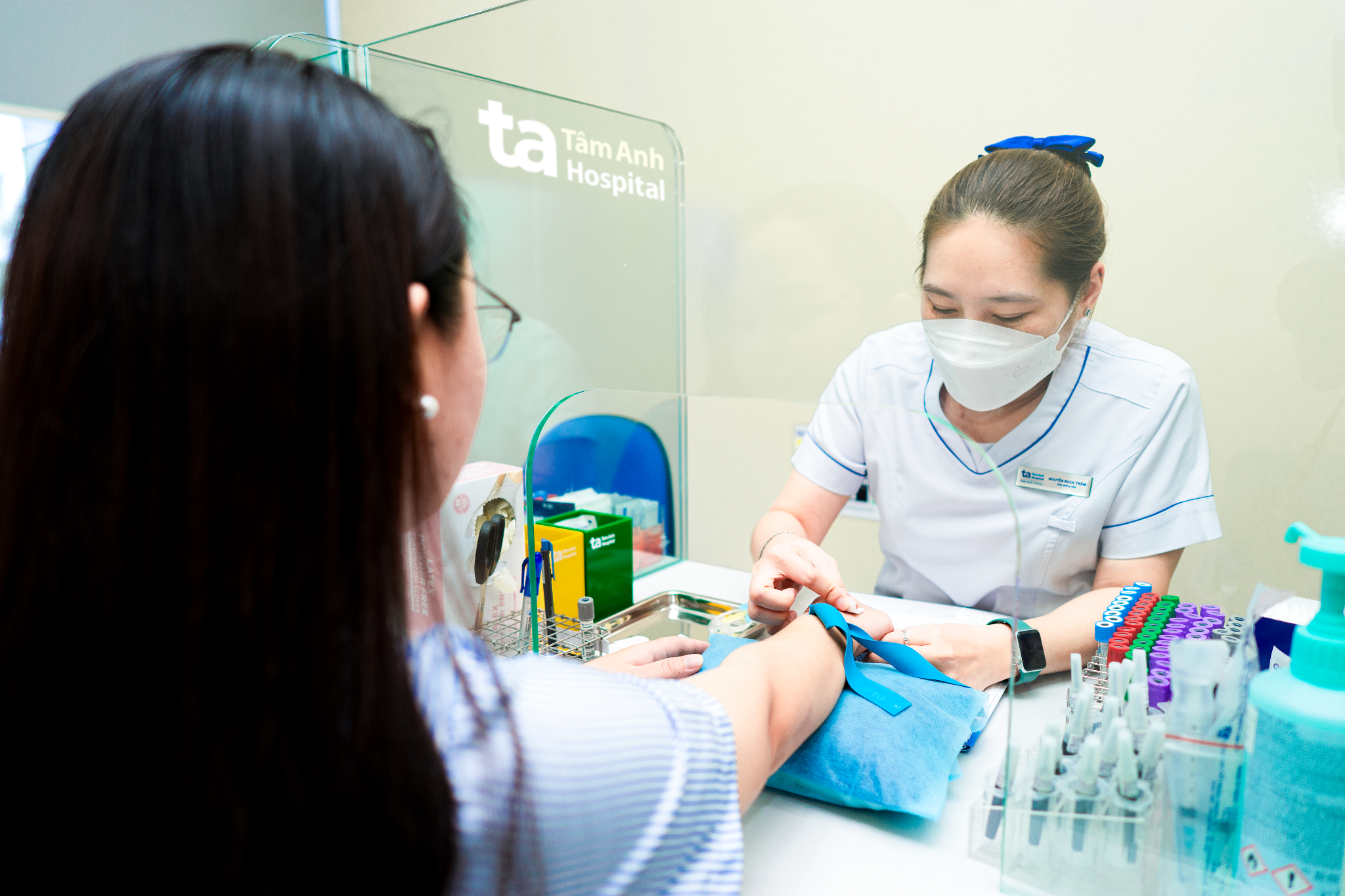Non-invasive prenatal testing (NIPT) uses a pregnant woman's blood sample to analyze cell-free fetal DNA originating from the placenta to screen for fetal genetic abnormalities.
Doctor Nguyen Phuong Thao, a fetal medicine specialist at Tam Anh General Clinic, District 7, explained that traditional NIPT primarily detects the risk of fetal abnormalities in the number and structure of chromosomes, such as Down syndrome, Edwards syndrome, and Patau syndrome. The latest NIPT uses next-generation gene sequencing (NGS) with deep coverage, expanding the screening capacity to 23 common chromosomal abnormalities and about 30 genes related to serious single-gene dominant inherited diseases.
Specifically, this test screens for chromosomal abnormalities, including trisomy 21 (Down syndrome), trisomy 18 (Edwards syndrome), trisomy 13 (Patau syndrome), sex chromosome aneuploidy (Turner syndrome, Klinefelter syndrome), and abnormalities of chromosomes 1, 2, 3, 4, 5, 6, 7, 8, 9, 10, 11, 12, 14, 15, 16, 17, 19, 20, and 22. Expanded NIPT also screens for DiGeorge syndrome (22q11.2 deletion syndrome), which often causes congenital heart defects, cleft lip and palate, thymic hypoplasia, and endocrine disorders.
The new method also screens 30 genes related to common dominant inherited single-gene diseases due to de novo mutations, including TSC2 (tuberous sclerosis complex), FGFR3 (achondroplasia, craniosynostosis syndromes), PTPN11 (Noonan syndrome, Leopard syndrome), COL1A (osteogenesis imperfecta), and SYNGAP1 (intellectual disability). These de novo mutations often appear when older fathers have children.
Doctor Thao said expectant mothers can opt for NIPT after 9 weeks of pregnancy. However, the best time for accurate NIPT results is between weeks 11 and 12 of pregnancy, when the placenta is stable and releases enough cell-free fetal DNA into the mother's blood, along with normal morphological ultrasound results. NIPT can detect Down syndrome with up to 99% accuracy, while the false positive rate is about 0.1%. For dominant gene mutations, the sensitivity of NIPT is estimated to be over 70%. NIPT results support effective diagnosis and intervention, ensuring optimal pregnancy care and reducing the burden of disease for children after birth.
Doctor Thao noted that NIPT is a screening test, not a diagnostic tool. If the results show a high risk, expectant mothers should consult a specialist for further evaluation and undergo diagnostic procedures such as chorionic villus sampling, amniocentesis, or fetal cord blood sampling. Pregnant women also need regular prenatal checkups, especially at 4 important ultrasound milestones: 11-13 weeks and 6 days, 18-22 weeks, 28-32 weeks, and 36 weeks. These allow doctors to monitor fetal development and detect structural abnormalities early, as NIPT cannot screen for all birth defects.
 |
A pregnant woman having her blood drawn for prenatal screening at Tam Anh General Clinic, District 7. Photo: Thanh Luan |
A pregnant woman having her blood drawn for prenatal screening at Tam Anh General Clinic, District 7. Photo: Thanh Luan
Pregnant women with husbands over 40 may have an increased risk of de novo gene mutations in the fetus related to bone diseases. Cell division that produces sperm in older men increases the chance of accumulating DNA replication errors, leading to the appearance of de novo gene mutations in sperm. Pregnant women with a family history of genetic diseases, having given birth to a child with birth defects, working in hazardous environments, or being exposed to chemicals also have an increased risk of genetic abnormalities. In these cases, expanded NIPT can be chosen to screen for microdeletions, microduplications, and some dominant inherited single-gene diseases. Pregnant women who want comprehensive screening for their fetus can also choose this test.
In some cases, NIPT is not applicable to expectant mothers with triplets or more, a history of cancer or currently undergoing cancer treatment, organ transplantation, stem cell therapy, or blood transfusion within the last 4 months.
Ngoc Chau
| Readers can submit questions about pregnancy and childbirth here for doctors to answer. |












